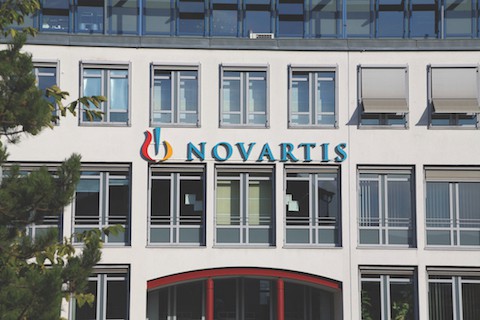
One of Novartis’ self-identified growth prospects – DP2 antagonist fevipiprant – has failed to meet its primary endpoint in a phase 3 study in moderate-to-severe asthma.
Novartis had high hopes for the drug, on the basis of the belief that by blocking the DP2 pathway, a potentially important regulator of asthma inflammation, fevipiprant (QAW039) could stabilise uncontrolled asthma patients.
Unfortunately, this wasn’t the case. The DP2 antagonist failed to demonstrate a clinically relevant reduction in the rate of moderate-to-severe exacerbation in inadequately controlled asthma patients compared to placebo.
The strength of the data is so clear that Novartis is discontinuing development of the drug in asthma. Stacked on top of two earlier failed studies of the drug in moderate asthmatic patients, Novartis clearly sees no benefit in continuing to investigate the treatment in this area.
“While the results of the LUSTER studies with fevipiprant are disappointing, they meaningfully contribute to our understanding of the DP2 pathway in asthma,” said John Tsai (pictured below), head of global drug development and chief medical officer at Novartis.

John Tsai, Novartis’ head of global drug development
“We are incredibly grateful to all the patients, their families and the investigators who participated in the studies and contributed greatly to this research,” he added.
Novartis acquired the drug back in 2016, following its acquisition of Ziarco. At that time, fevipiprant was being studied in atopic dermatitis, before Novartis switched its focus to asthma.
The disappointing phase 3 results will be a blow to the Swiss pharma, especially since it had recently highlighted the drug at its R&D update event.
Fevipiprant was identified as one of five promising late-stage candidates expected to drive near- to mid-term growth for the company, with launches expected within the next few years. Its safe to say that Novartis can no longer bet on the DP2 antagonist to generate any kind of growth following these results.
The failure of Novartis’ drug also damages the overall hypothesis of DP2 targeting drug candidates, and particularly hurts the prospects of would-be competitor Gossamer Bio.
The biotech has a DP2 antagonist – GB001 – in two phase 2 studies, with another one planned, across eosinophilic asthma, chronic rhinosinusitis and chronic spontaneous urticaria.
If it can disprove the naysayers and bring GB001 to market in asthma, Gossamer will have little competition – at least not from Novartis.
Although this seems unlikely, it will be ultimately be a waiting game until the company reveals the phase 2 results – interim analysis from the trial is due next year.




